My Vineyard smells like new hay and tastes like a ripe Sungold tomato. It looks like a fiery field of orange butterfly weed and feels like a soft carpet of pine needles.
Like a child’s drawing, my Vineyard is populated by farm animals – sheep and goats, hens and chicks. Cattle and oxen, too. And wild things. A whole Watership Down of bunnies and a flash of white tails from bucks whizzing through the woods. Skunk kits hide in the hedgerows, hawks play sentry atop the tallest pines, and a pair of otters pop up in Bliss Pond.
My Vineyard is a quilt of vegetable gardens with locust fenceposts, stone walls lined with Rosa rugosa, winding paths under twisted Beetlebungs that lead to the startling indigo sea. Beach plums bloom on the dunes like clouds of cotton. A tiny piece of sea glass sparkles in the late, low, sun, bravely defended by a pile of round, smooth rocks as a roller crashes over it.
My house is down a dirt road. There are no streetlights; we do not have a paved driveway or central air conditioning. We do have a path that begins in our backyard and ends at Tisbury Great Pond two miles away, via an ancient way through the woods, two conservation properties and one public trail. It is a daily lifeline to the water.
This is the reality of my Vineyard. It isn’t a fantasy or a caricature of a simple, rural life. It is the actual life I’ve created by the choices I’ve made about the way I want to live. But my Vineyard is different from everyone else’s. The thing about a place like Martha’s Vineyard is that it becomes whatever you want it to be. It inspires invention and reinvention.
When I arrived here, running away from another reality, those people who lived on farms and down dirt roads and had gardens and chickens and messy yards and three jobs and one very old truck welcomed me into their routines, even though I was a washashore, and a pretty clueless one at that. I was a refugee from the suburbs, from a stressful job, and from a marriage ending with deep sadness.
Despite my best attempts at isolating — I was writing my first cookbook and nursing all the real and imagined slights of early sobriety — I soon met a farmer and a food activist and someone trying to build school gardens. This is what happens out here.
The farmer let me feed her pigs the leftovers from my recipe tests. Every afternoon I’d bump-bump down the pot-holed road to her farm in my red Honda, park alongside the field where the pigs hung out, and toss the scraps over the fence. As soon as they saw my car arrive, three portly sows would come skipping down the hill and begin rooting around for the best parts, tossing the fennel fronds and lemon rinds aside for the cheesy gratin topping and the roasted tomatoes on toast.
Three portly sows would come skipping down the hill and begin rooting around for the best parts, tossing the fennel fronds and lemon rinds aside for the cheesy gratin topping and the roasted tomatoes on toast.
The rest of the farm remained a mystery to me until one day the farmer invited me through the gates to see the newborn lambs she’d been up all night helping to deliver. Another day, I followed her daughter inside the house to hold a tiny piglet who would die before the week was out. Later on I spent a Saturday morning watching the mama sheep get sheared. It was there that I got to know a 2000-pound oxen and his 2000-pound brother.
The food activist asked me to help her compose a map of Island farms, forcing me to defy my reticence about bothering strangers in order to track down farmers. These were busy people; by the time I caught up with them, they usually had their hands full washing eggs, bringing cows in for milking, or repairing broken machinery. Still they stopped to talk with me, and often pressed a carton of eggs or a pint of tomatoes into my hands as I left.
And the school garden coordinator pressed a shovel into my hands when I volunteered to help on the first build-out.
In retrospect, my Vineyard – what I will always think of as my Vineyard – was irrevocably shaped by the magnetic pull of the food, farming, and gardening community on the Island. By luck or grace or the sheer force of longing, I found myself drawn into it before I had time to wonder what I was doing on this Island. Now I see that it was inevitable that I would live up-Island (the rural end), that I would eventually start a small farm, that I would find the inspiration to write more cookbooks here.
Months before I took off for my “sabbatical” on the Vineyard, while I was still in Connecticut, I was introduced to the writing of farmer/poet/essayist Wendell Berry, who writes so convincingly about place – about feeling at home in a place, feeling a part of a place, even having an understanding or relationship with a place, particularly one in the natural world.
One Sunday afternoon, I was sitting outside, taking a break from proofreading magazine pages. It was towards the end of a long summer, a month or so after I had given my notice to leave my job as Editor of Fine Cooking magazine, but five months before I would manage to actually get out the door. I was reading “A Native Hill,” the first essay in Berry’s collection, The Art of the Commonplace.
“Standing in the presence of these worn and abandoned fields, where the creation has begun its healing without the hindrance or the help of man, with the voice of the stream in the air and the woods standing in silence on all the slopes around me, I am deep in the interior not only of my place in the world but of my own life, its sources and searches and concerns.”
“Uh oh,” I suddenly realized, with a clarity that had to be God-given. “This is not my place.”
Connecticut was not my place and never would be, I finally understood. Much like my hometown of Washington, D.C. had never really felt like my place. I had always been more comfortable during my summers in Delaware, in a little town sandwiched between the bay and corn fields.
Not long after that, I began searching for a winter rental on Martha’s Vineyard. I don’t know exactly why I picked the Vineyard – it was really my husband’s place, his childhood. But we had visited a few times over the years and some little part of it had stuck with me — especially the trail walks our friends had taken us on. Of course, it also felt remote, and I needed to retreat into my Cancer-the-crab shell for a bit.
These days I understand that I was led to this place. The place where I always have sand in my shoes, where sea glass and clam shells clutter shelves, where the pine barrens and dune grass and goldenrod and Silver Queen corn remind me of Delaware – or at least the Delaware of my childhood, which has been greatly altered by rampant development.
But so much of the Vineyard’s beauty is all its own – the clay cliffs of Aquinnah, the twisted trees sculpted by relentless wind, the tail of Cape Pogue curling back on itself, the brilliant star-punched midnight sky, unpolluted by light, so far from the mainland.
It bothers me that all this beauty and healing is no longer freely available to anyone who is willing to endure long winters and rustic dwellings to find some peace. I wouldn’t be telling the truth if I didn’t admit to feeling a little judgmental about the latest wave of Vineyard home buyers, many of whom have purchased solely for investment reasons and have no plans to live here — ever. These are the purchases that have removed potential year-round homes (and rentals) for Islanders and helped to drive the median home price up over $1 million. And unlike the long-time seasonal residents of the Vineyard who support the year-round community both financially and through participation in vital organizations, these new investors bring tax dollars, sure, but nothing more.
My realtor friends tell me that the first thing the new home buyers want is street lights and paved roads. Why bother to come to a place where the natural beauty is the star attraction – and then shut it out? Swimming pools and thousands of square feet (sometimes tens of thousands) of indoor space characterize new construction. Haven’t they heard of The Not So Big House? People get lonely in cavernous spaces and inevitably all wind up huddling in one room together. Okay, I’ll stop.
I know my Vineyard is not everyone’s Vineyard. I know that for each person who loves this place there is a different “my Vineyard.” For one, it might be the Flying Horses Carousel, takeout from Gio’s on Circuit Ave., the weekly sing-along at the Tabernacle in the Camp Ground, and endless hours on State Beach. For another it might be a rose garden in Edgartown, a catboat on a mooring in the harbor, and drinks on the porch of the Harbor View. Or for my stepson’s crew — the surf at Squibby, bonfires on the beach, and live music at The Ritz. But I’ve never heard anyone say that their favorite thing about the Vineyard is their three-car garage or their extra kitchen for the caterers. You can build those things anywhere.
I know I’m just like all washashores. We get here and decide the place should stand still in time. Guilty as charged. But I’m not worried about me – I have my Vineyard in my heart and it can never be taken away from me, even if someday we move to Delaware if it gets too expensive to live here. I just hope there is always room here for everyone who craves a different kind of life. It is a life worth passing along.
“ It is not a terrible thing to love the world, knowing that the world is always passing and irrecoverable, to be known only in loss. To love anything good, at any cost, is a bargain.”
- Wendell Berry
***
Thank you for reading and just a note about this weekend’s sub-zero temperatures on the Island: You’ll be happy to know that the Martha’s Vineyard Agricultural Society made available the Ag Barn for owners to bring any livestock that might need shelter from the windchill. I visited the oxen and goats this morning and they were cozy. Owners brought them hay and water and all was well.
If you are interested in a quick introduction to the wisdom of Wendell Berry, I suggest the Sabbath poems, collected in A Timbered Choir or this essay, The Pleasures of Eating.





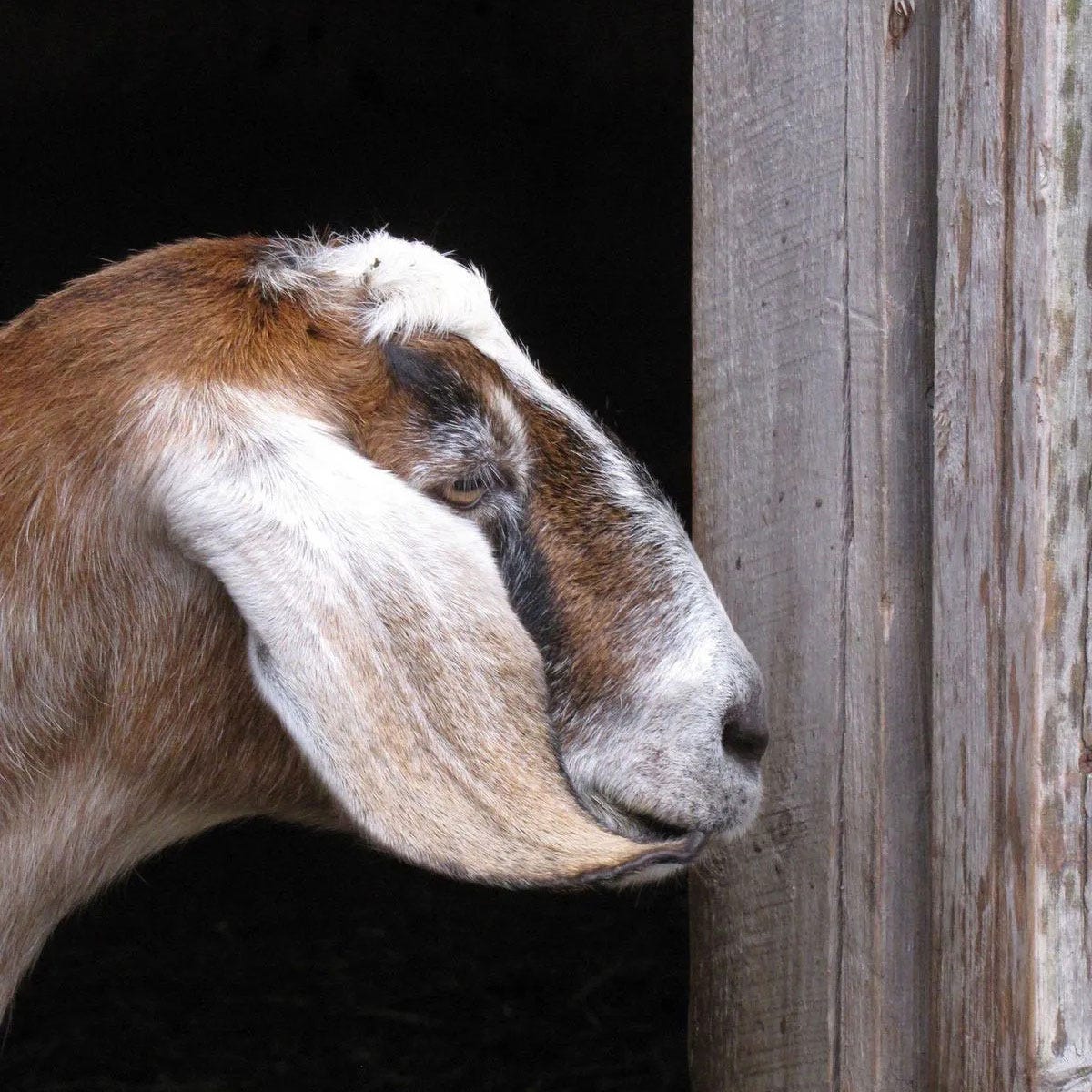
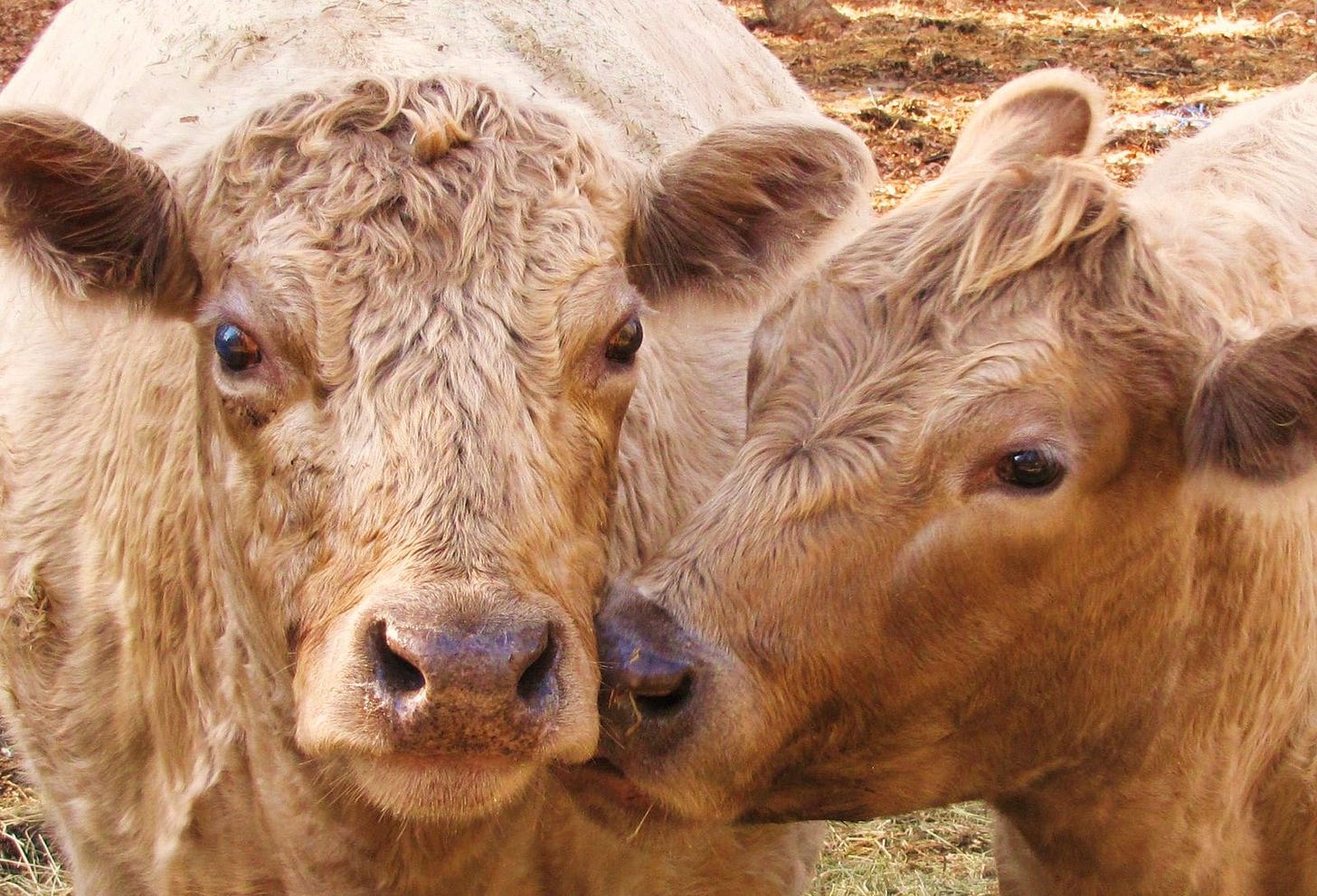
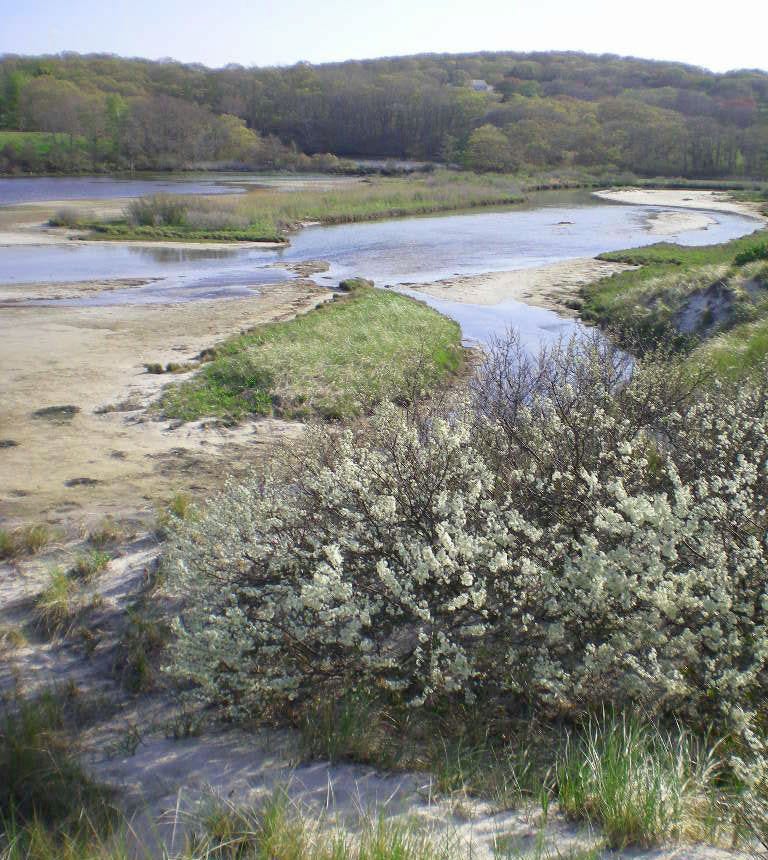
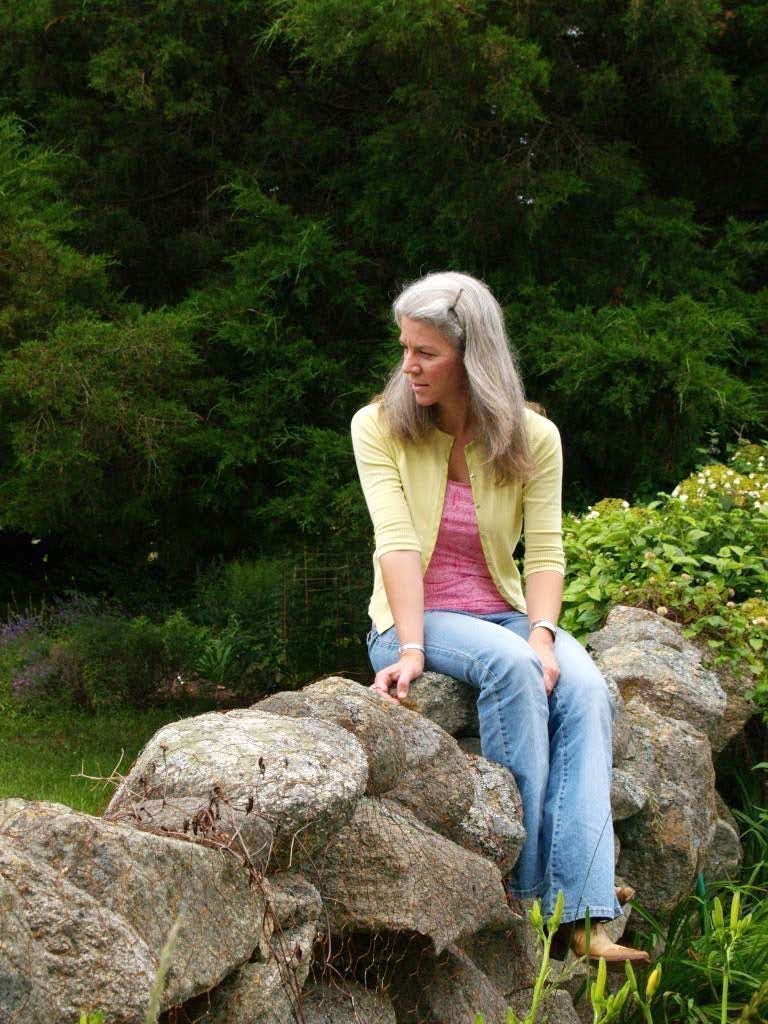
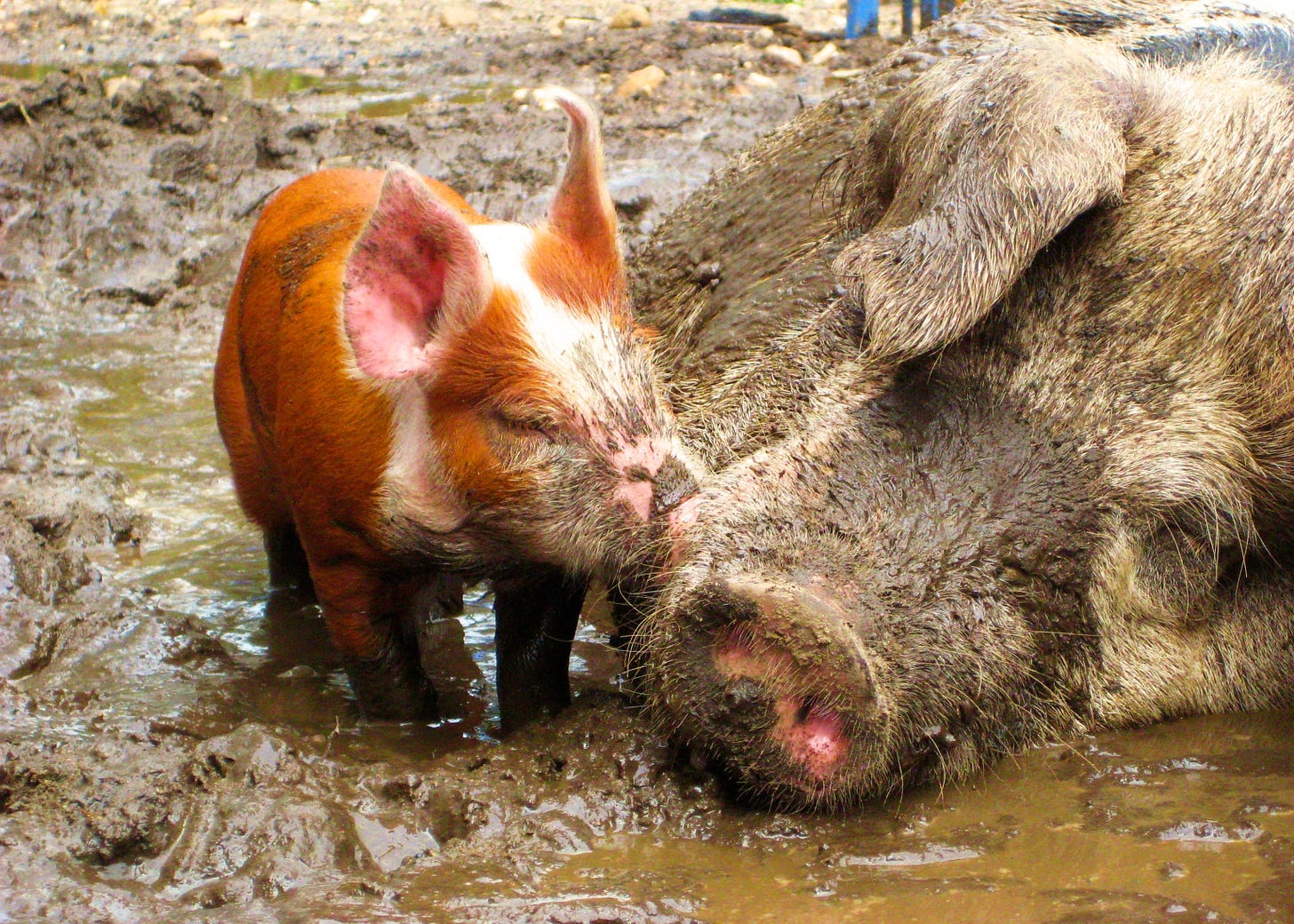
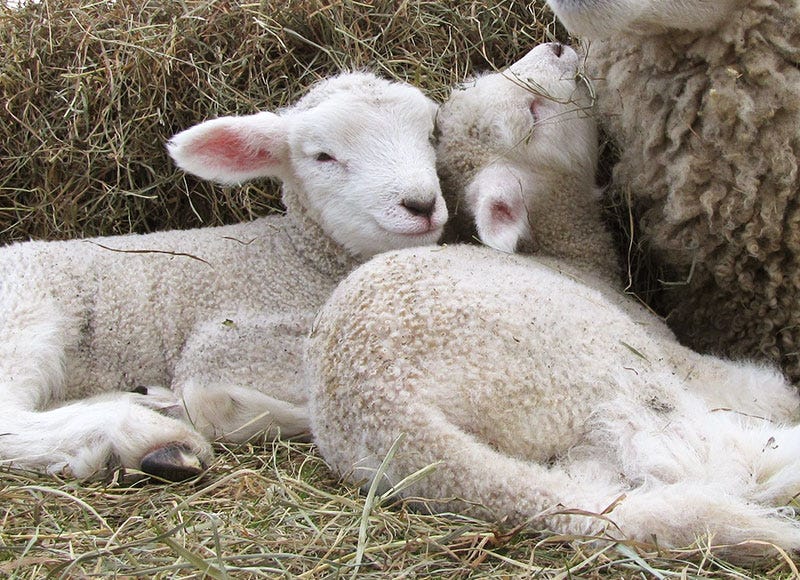
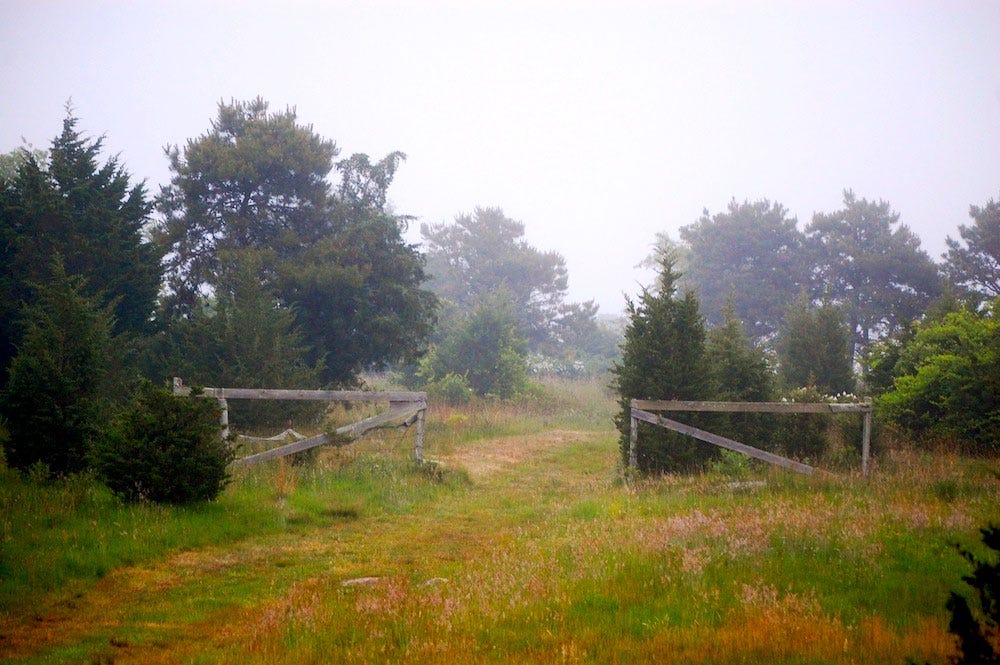
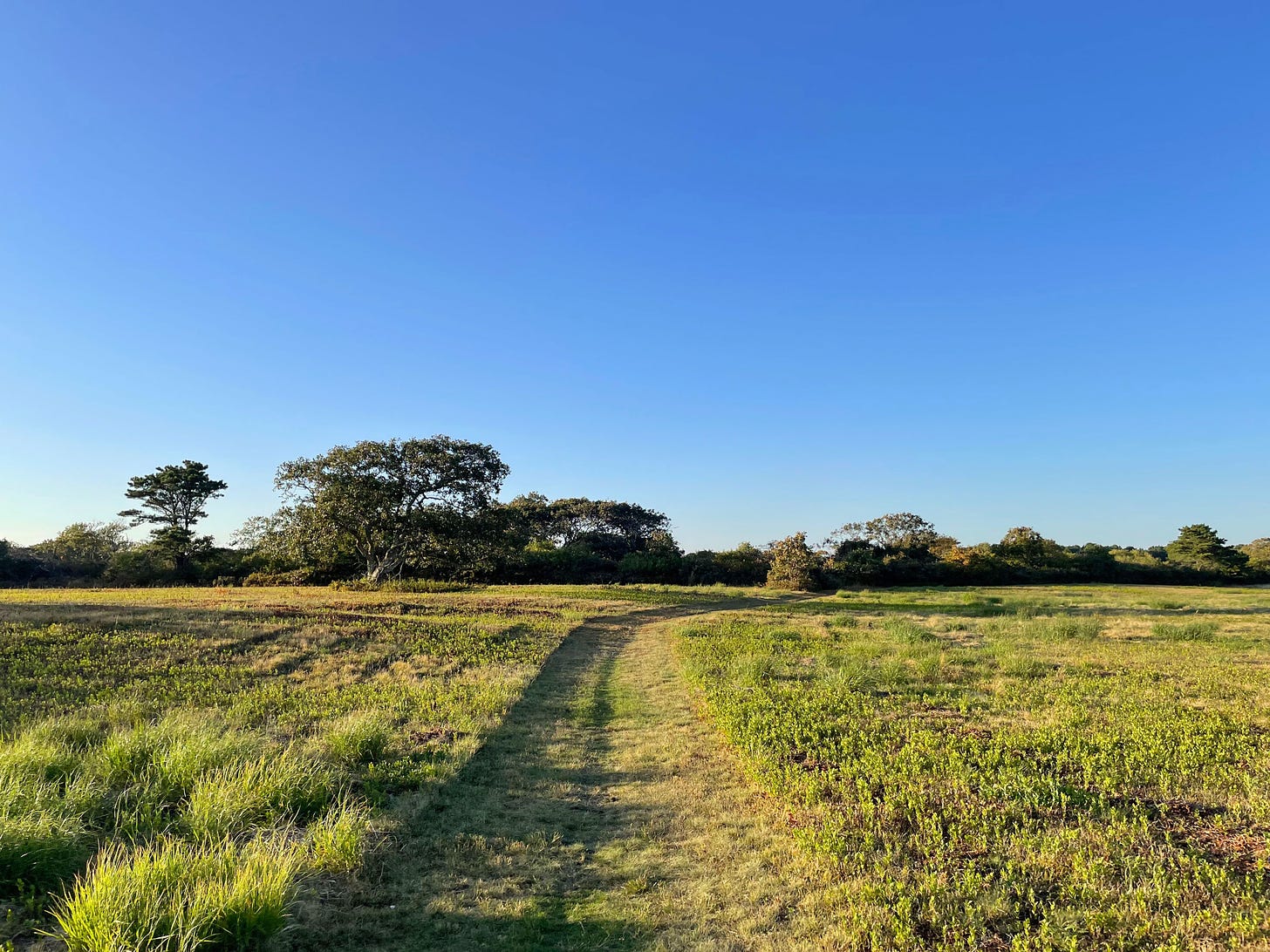
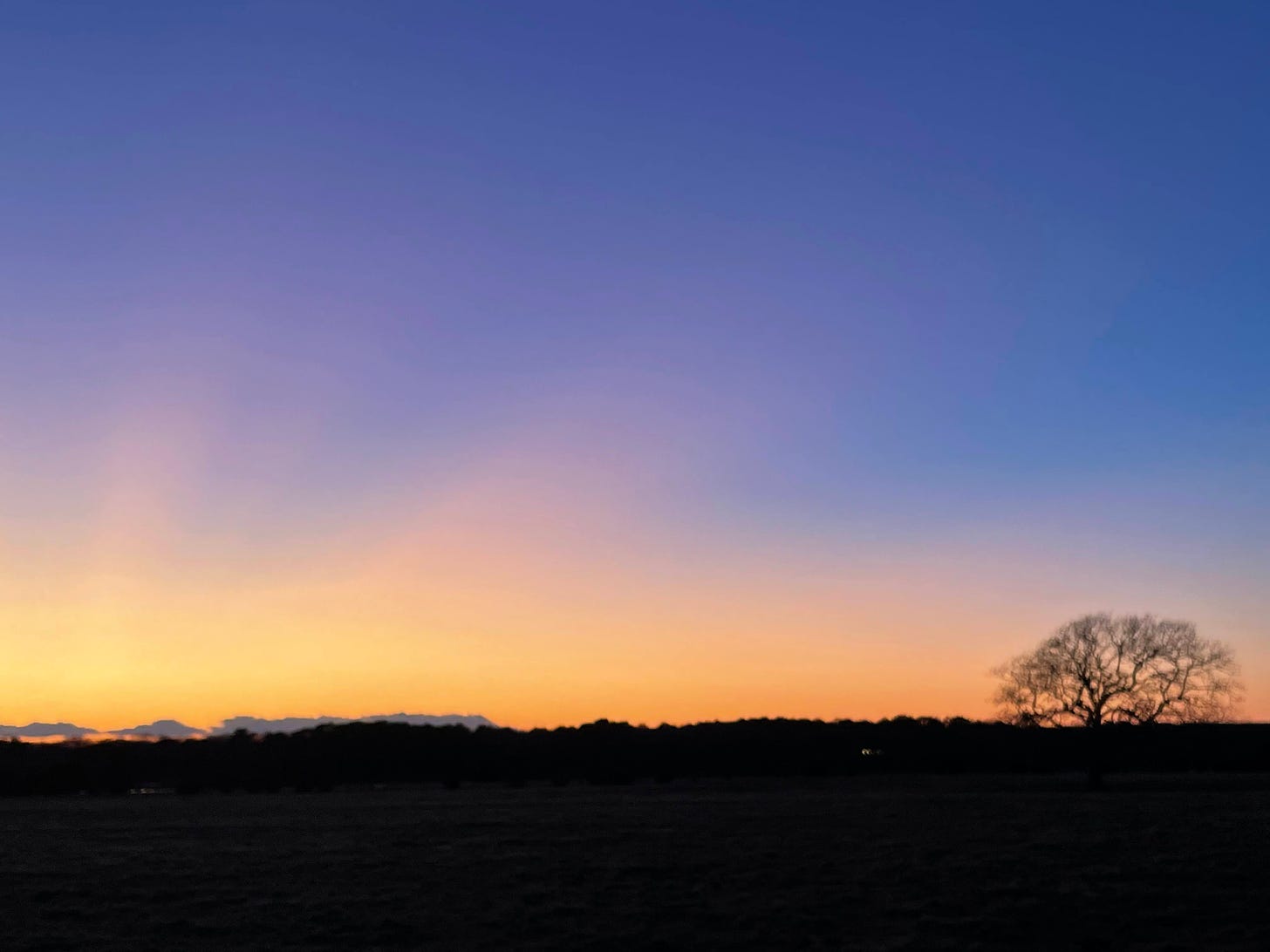
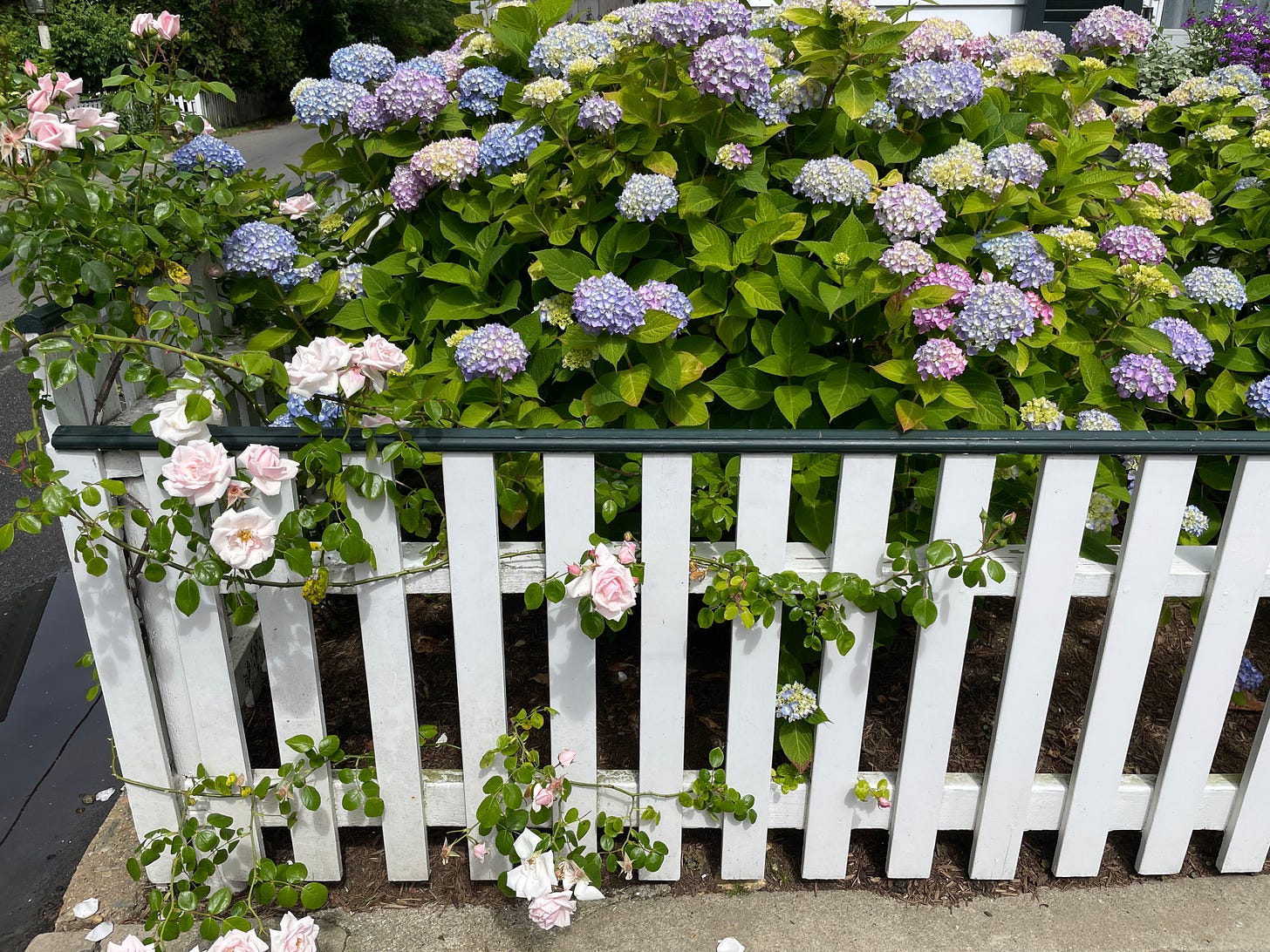
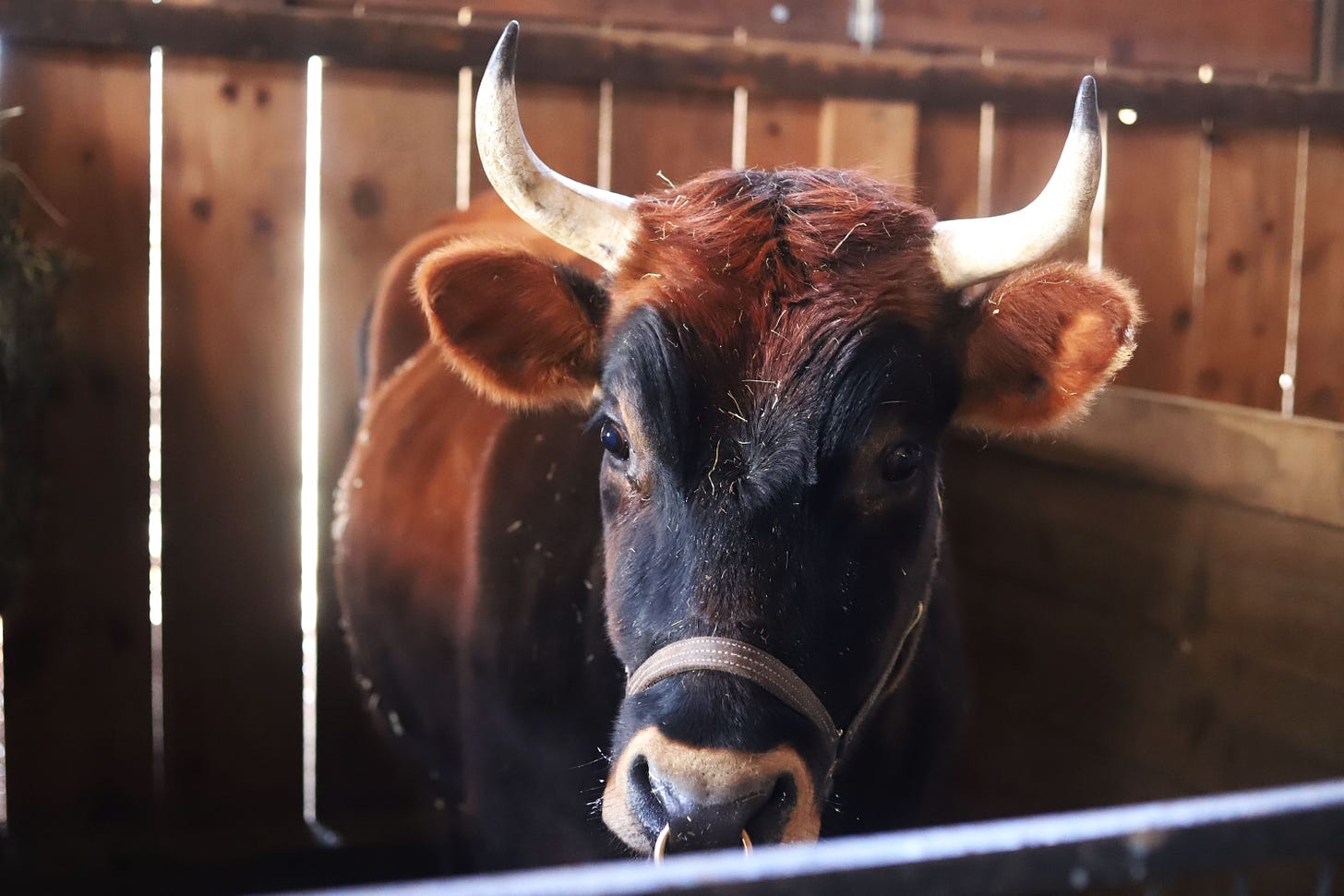
Thank you so much for your wonderful words and photos, Susie! As always, you inspire me. I may have told you that my husband died in August and that my daughter Amy and I are moving to South Carolina the weekend of April 30th. I’m working very hard to empty our big house that we’ve lived in for nearly 40 years so that we can go into a little house down the road from my son and his family. Thank you again - you’re the best!
"I'm not from here but I got here as soon as I could" - applies to many places people find to love.
Delaware would welcome you back with open arms but some of those corn fields are now developments!